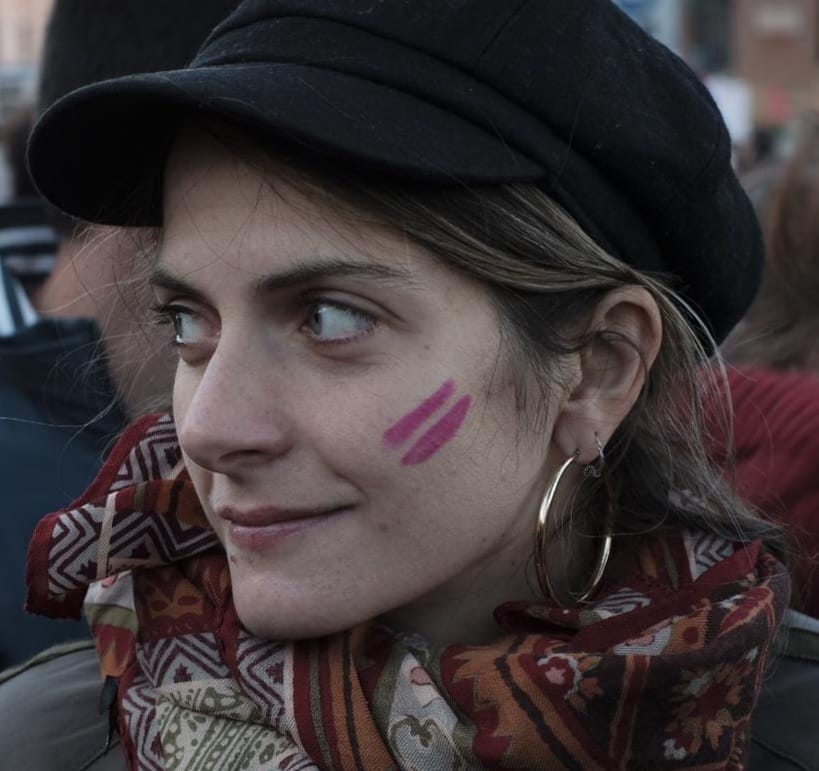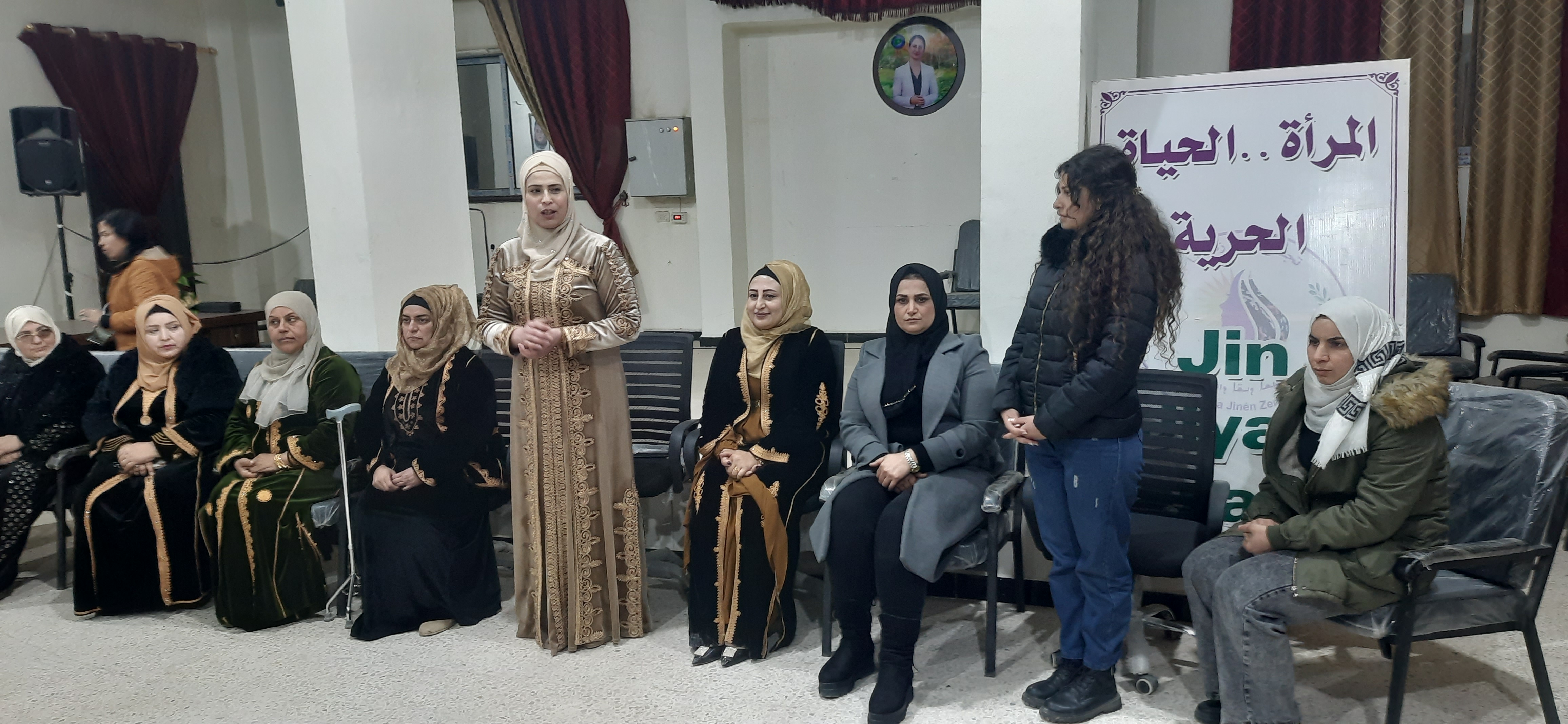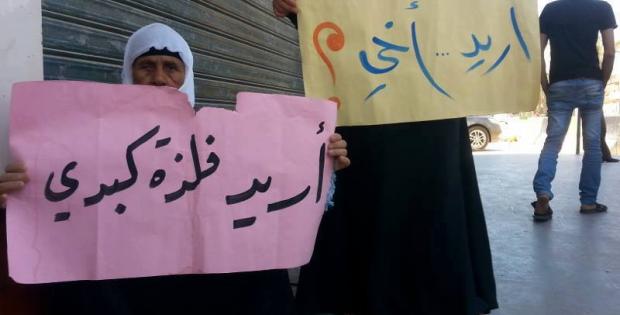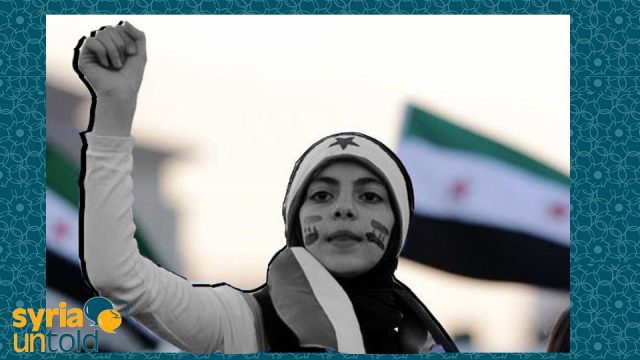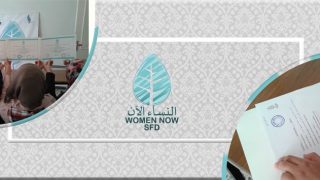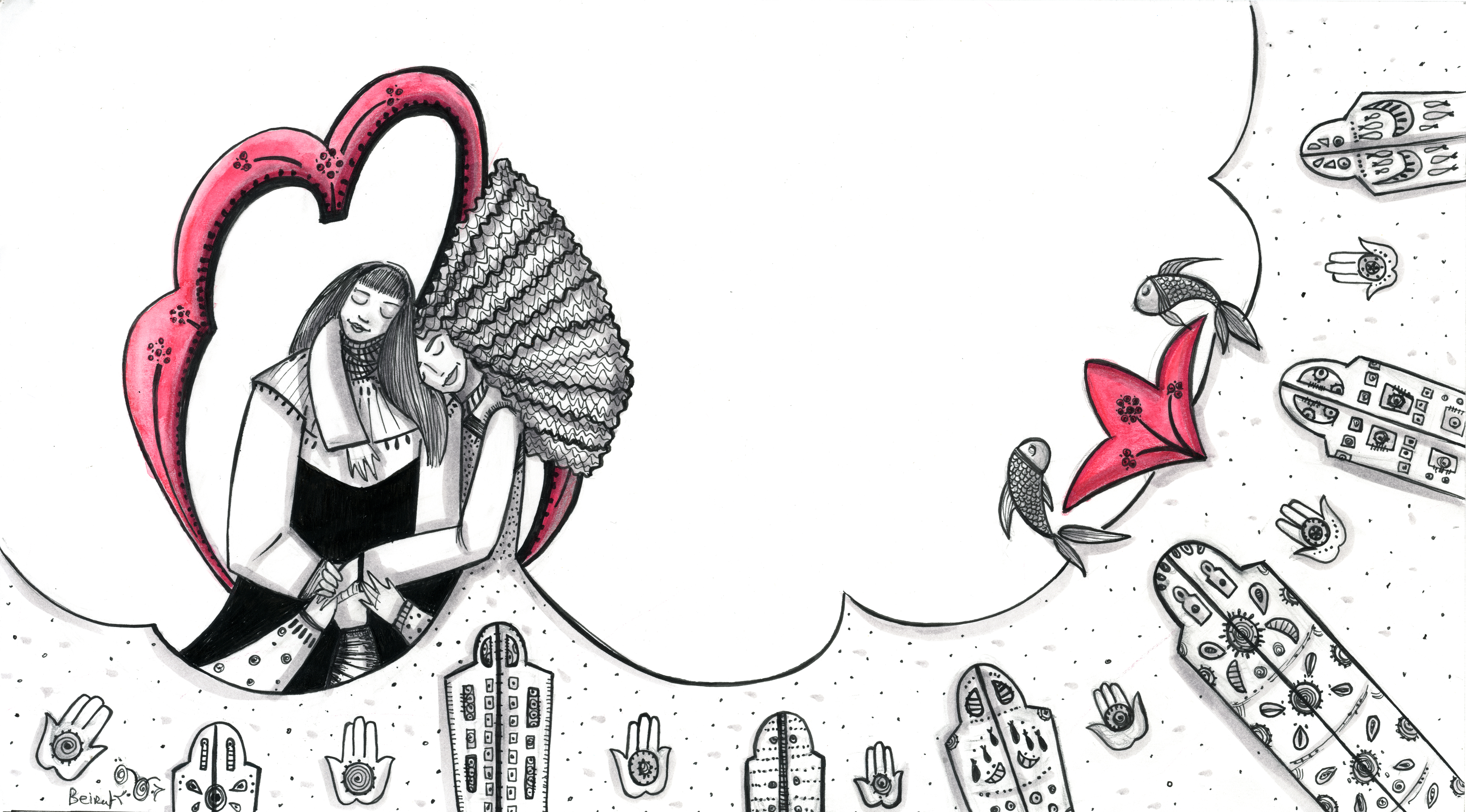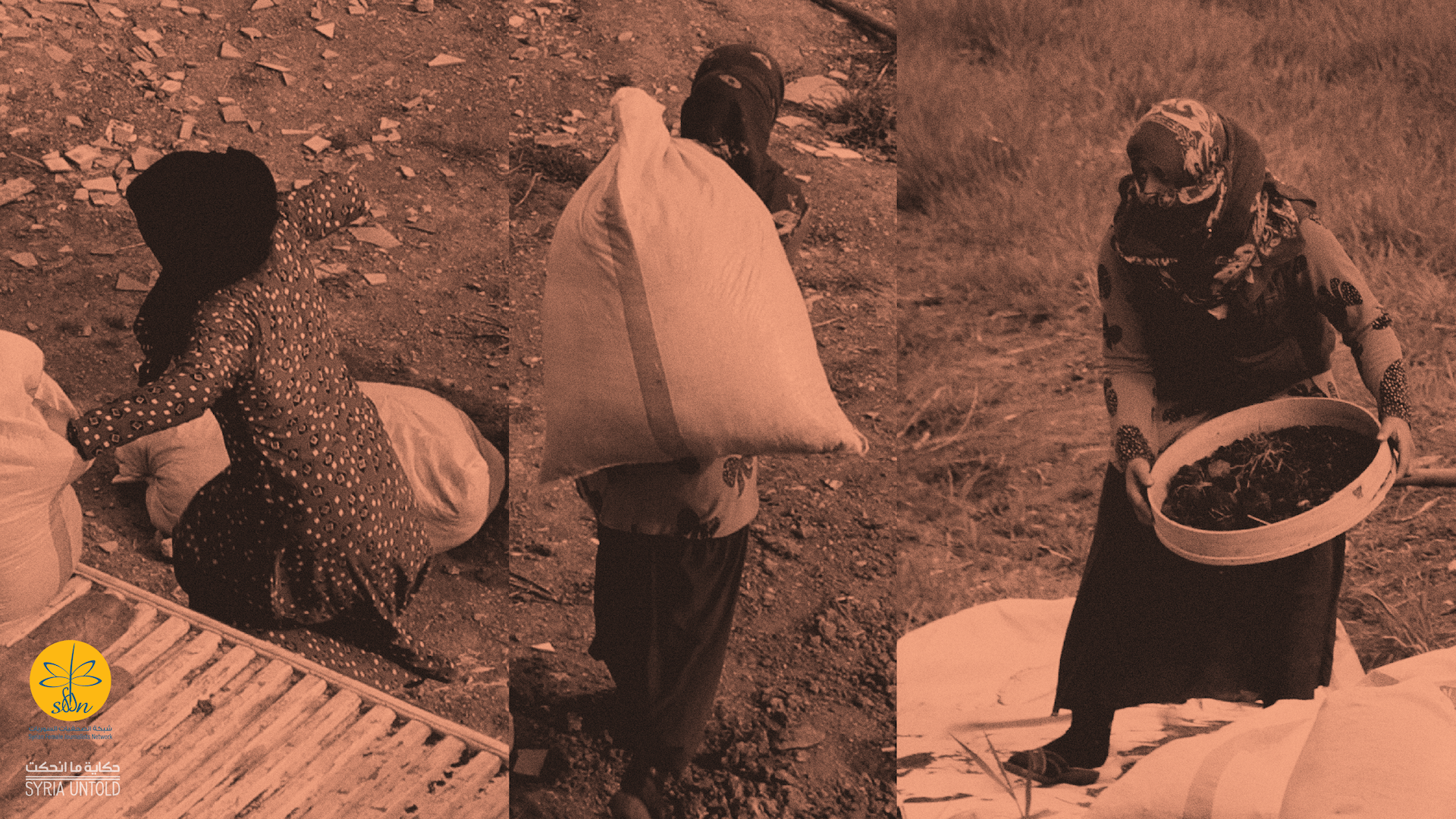In the headquarters of Zenubiya assembly in Raqqa, northern Syria, a dozen women stand before a group of about 20 Europeans. When, as a sign of solidarity, some French lawmakers chant the feminist slogan in Kurdish jin, jiyan, azadi, they kindly join in. Then, smiling, they repeat the same slogan a second time, switching to Arabic: "Al-mara, al-haya, al-hurriya!".
Held at the end of January, the meeting in Raqqa aimed to present Zenubiya organization to a group of international journalists and politicians. First founded in 2021 in Raqqa, the Zenubiya movement sought to unite women from the predominantly Arab cities in the northeastern Syria region which has been under Syrian Democratic Forces (SDF)’s control and administered by the Democratic Autonomous Administration of North East Syria (DAANES).
On 10 March, SDF commander Mazloum Abdi reached an agreement with the new Syrian Caretaker Government’s president Ahmad al-Sharaa about military and civil integration of the SDF and DAANES into the new scenario. However, it is still unclear how the integration will proceed to implement the agreement no later than the end of this year. A few days later, on 13 March, al-Sharaa signed a constitution draft intended to form the basis of a five-year interim period, which the Kurdish-led Syrian Democratic Council (SDC) rejected, saying it did not go far enough in protecting the rights of Syria's diverse communities. The SDC, the political leadership of the U.S.-backed SDF, called for the decree to be rewritten to distribute powers more fairly and adopt a decentralised ruling system.
Boshra Mohammad, member of Zenubiya association, has always underlined its multiethnic composition: “Our organization includes Arabs, Kurds, Syriacs, Christians, Armenians, Yazidis and all the components of northeastern Syria. There are no only Arab or only Kurdish organisations. We are a Syrian unity organisation for all components of the people”.
In the assembly’s hall, walls are covered with portraits of female pro-Kurdish activists and militants. Among them is Hevrin Khalaf, the former secretary-general of the Future Syria Party, who was killed in 2019 by a Turkey-backed militia.
Our organization includes Arabs, Kurds, Syriacs, Christians, Armenians, Yazidis and all the components of northeastern Syria. There are no only Arab or only Kurdish organisations. We are a Syrian unity organisation for all components of the people.
The movement is based on the ideology of Democratic Confederalism and “jineoloji”, the women's philosophy inspired by Abdullah Ocalan, leader of the Kurdistan Workers Party (PKK). At the end of February, when the Kurdish leader called the PKK to lay down arms and end its four-decade-long war with Turkey, Zeinubiya assembly welcomed the statement with public hearings and celebrations. But despite the PKK declaring a unilateral ceasefire on 1 March, Turkey is still bombing northeastern Syria.
Throughout the years, the association widened and opened offices in Raqqa, Tabqa, Manbij and Deir Ezzor. Last December, however, after the Turkish-backed Syrian National Army (SNA) took control of Manbij, their local headquarter was occupied, according to their account, by the same militia.
Zenubiya has been active so far only in areas under the Kurdish-led SDF and DAANES. Unlike the pro-Ocalan female militant stereotype, most of Zenubiya's members are civilians, not military. Their icon is Zenobia, the legendary queen who, in the third century AD, fought for the autonomy of the Palmyrene Kingdom from the Roman Empire, siding with the Persians.
In 2021, their public adherence to "jineology," raised suspicion among several Arab media outlets, which associated them with a shadow organization of the SDF.
Although politically aligned with the SDF and supported by its civilian institutions—and even protected by the Kurdish administration’s police (Asayish) during demonstrations—Zenubiya does not directly collaborate with the military.
However, in a war-torn context like northeastern Syria, the distinction between the two spheres has not always been easy to define.
Dying at Tishreen Dam
Zenubiya activists are constantly active on the frontlines of the Tishreen Dam, a critical water and energy infrastructure a few kilometers from the city of Manbij, which Turkey has been bombing for nearly two months. After Ocalan’s call for disarmament, SDF leaders publicly stated that it would not apply to their forces, and the clashes between SDF and Turkey at the dam have been going on until now, with Turkey repeatedly attacking and killing civilian protesters. Under the new signed agreement, a ceasefire should apply in all Syrian territory and so theoretically including the Turkish-backed militia controlled areas.
Civilian convoys from different cities in northeastern Syria take turns participating in demonstrations at the dam. Zenubiya association has joined the protest since the start by singing, performing traditional dances, holding speeches and commemorating the fallen. By physically being there every day, the civilian protesters hope their presence will act as a deterrent against Turkish attacks. But that is not always the case, and since January, more than 20 have been killed during the demonstrations, according to SDF data.
Among them was Kerem Shehab, former activist of Zenubiya in Raqqa. Born in 1994 in Deir Ezzor, according to the organization, she was killed by a Turkish drone while heading to the dam to give a speech on behalf of the organization. The Syrian Network for Human Rights described the circumstances as "unclear," suggesting instead that a landmine may have been the cause of her death.
On some anti-SDF Raqqa Facebook pages, the news is reported even differently, and the comments vary between hate speech and expressions of condolence. Amid the chaos of wartime information, the only certainty is that Kerem Shehab just entered her thirties, and that she lost her life while heading to a protest near the dam on Syrian territory.
On one side, Zenubiya’s women are threatened by Turkey and its allied militias. On the other, segments of their own communities see their activism as an affront to traditional culture.
On one side, Zenubiya’s women are threatened by Turkey and its allied militias. On the other, segments of their own communities see their activism as an affront to traditional culture.
Another threat comes from the gradual resurgence of Daesh in areas under the Autonomous Administration’s control. "It is a threat to all civil organizations, but especially to women's organizations," says Samantha Teal, a Syria-based researcher working for the Rojava Information Center.
The story of Qamar al-Sud, as recounted by a Zenubiya activist, seems emblematic of these multiple risks. Alongside 22-year-old journalist Aisha Abdelkader and YPJ fighter Iman Ahmad, Qamar al-Sud was one of the first victims of the Syrian National Army in Manbij, a city that the SNA retook from the SDF in early December.
"Qamar was already in Manbij and was unable to leave in time," the source told SyriaUntold. According to the activists' account, after separating from her husband, Qamar began working for Zenubiya association, receiving threats from an uncle who worked for the Syrian National Army, demanding her to stop her activities. "When the mercenaries entered Manbij, these threats became reality. “Her uncle killed her in front of her children," Zenubiya member affirms.
Deciding Syria’s Future
Qamar al-Sud worked in the religious affairs department. Among other topics, indeed, Zenubiya also focuses on "democratic Islam".
"We address religious issues from a critical perspective and seek to understand religion’s impact on women’s status in society" Zenubiya members explain. "We believe that religion can be both a tool for liberation and progress – their message reads - as well as a means of oppression and restriction of women's freedom".
The association focuses its efforts on social and cultural initiatives, launching economic projects and providing job opportunities for women, such as in olive harvesting and wheat cultivation."Our goal is to give women the tools to be self-sufficient," the activists said during the Raqqa meeting. "We have created committees, starting from the most basic unit—the neighborhood commune—to address economy, education, and reconciliation. Our main challenge is to defeat Isis ideology".
On 25 February, when Ahmed al-Sharaa’s government unexpectedly convened a national reconciliation conference without inviting the authorities from northeastern Syria, the women of Zenubiya were outraged, along with all groups aligned with the DAANES. In a public statement, they categorically rejected "the exclusion of Syrian women from meaningful participation in this conference". With the new signed Kurdish-Damascus agreement and the following constitution draft, they more than ever hope to have guarantees to the rights of all Syrians to representation and participation in the political process and all state institutions based on competence, regardless of their religious and ethnic backgrounds. Feminist organizations are also there to monitor their gender representation.
As they reiterated to SyriaUntold: "Zenubiya’s goal is to ensure that all women's rights are included in the Constitution, without any restrictions. We want to be part of the decision-making process for Syria’s future".


